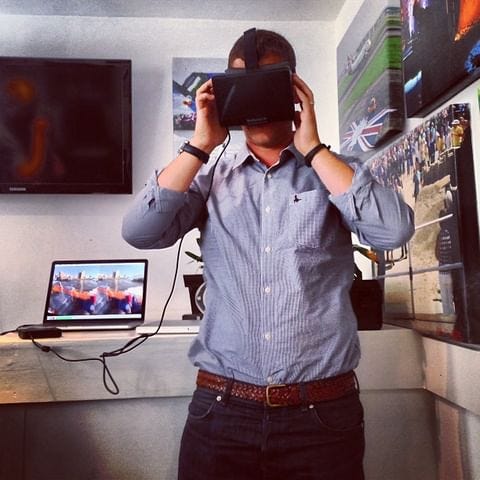The Social Media Report #29: 15 years in virtual worlds - a journey into the metaverse
Why we underestimate the change that will happen in the next two years
Over the last month, since Facebook’s vision of the metaverse was laid out by CEO Mark Zuckerberg, along with his aspirations for Meta’s land grab within it, I’ve been looking into the various concepts of what the metaverse really is, and ways in which organisations have been working to safeguard it. From China’s limits on social media and gaming time, to Roblox's lawsuit against the user and ‘cybermob’ that are ‘terrorising’ users. The full metaverse will take a lot of work from all in its ecosystem, but the path that takes people there will, I believe, play a more important part in influencing the future of the internet than we realise.
Firstly, I want to state that I’m an early adopter (/ nerd) of metaversal technologies - I like playing with them, and I’ve been trying them out for way longer than is popular, and in doing so it has always attracted its fair share of beef along with the buzz, which I get. Colleagues and randomers have ripped the proverbial out of me for my use of every single social network I was an early adopter of, from Twitter to Clubhouse, from Foursquare to Second Life (I was an early user of Second Life in 2006, even ended up working for the company through the PR firm I was in, and from time to time acted as its UK spokesperson.)
My Second Life alter ego, Drew Brewster. 2006. Nerd.
More recently, I’ve worked my way on to projects in AR and VR, in virtual worlds such as Minecraft and in in-game advertising, I work now in augmented reality, anything from stickers in Stories to filters and lenses. I was a beta tester for Google Glass, tested Facebook / Meta’s Oculus VR in 2013, I have Snapchat Spectacles and the Facebook RayBan Stories glasses. But having immersed myself in all these places, I have come to the conclusion that the metaverse is closer to normality than most people think. And it’s the path to the full metaverse that needs more thought than the final destination.
Testing Oculus VR in 2013.
The path to the metaverse involves a multi-layered experience of augmented and virtual reality, largely playing out on our phones, laptops and widescreens.
We already spend on the majority of every waking hour in front of a screen, either endlessly scrolling, watching, working, creating or engaging, often on multiple screens at once - data from uSwitch suggests we spend on average 12hrs 15mins on screens every day. On top of this, with newer networks creating ever more viral experiences, such as TikTok’s For You page which is now being emulated even by Spotify, the pull to our screens is ever stronger. We sometimes don’t notice the impact of this digital layer on our experience of reality.
Shaping our virtual worlds are the virtual goods, such as NFTs, that very much came to the fore in 2021 (NFT being Collins’ word of the year this year no less). They determine who owns what in virtual worlds ( a record plot of virtual land this week for example selling for $2.4m) and even the verified identity of a social media user. NFTs’ links to gaming, avatars, identity, value and virtual reality make them a key part of the metaverse, but their importance to social media is what has made them so big in the year just ending, too.
It makes sense to me therefore, that the baby steps that the internet is taking are going to be critical to understand and to shape, even more so than where we end up some time in the VR future. We always over-focus on the change that will happen in the next ten years, and underestimate the change that must happen in the next two.
What will be absolutely critical in this journey to meta will be building safety into the future of the internet, from VR and AR to live gaming and immersive social media. As Meta’s own observations explain here, through its leaked memo from the chief of their metaverse moves: “monitoring billions of interactions in real time will require significant effort and may not even be possible. Reality Labs, the division headed by Bosworth, currently has no head of safety role.”
I’m hoping that there will be wider exploration by mainstream audiences of the current mini metaverse that we’re in, that more education on safety online happens too, and that more people realise how deep into the metaverse journey we are already.
Side note:
I’ve recently invested in some brick technology to force me out of some of my autopilot screen time. After poring through some of the above data on immersion, I realised I needed it. One example is that I’ve switched away from using a smartphone, and invested in a new version of the classic Nokia 6310 phone. On top of the reduction in screen time it brought about, which I knew would happen and was obvious, I’ve also found some surprising changes to my screen habits. Full findings I’ll write up in my next newsletter but am tweeting them, here.
My must reads of the week
Here are some of the stories that I have been reading this week.
Ethics & safety
Instagram head Adam Mosseri agrees to testify on child safety at Congress.
Algorithm ethics and how it’s being done at Twitter (well). Good read on Casey Newton’s Platformer.
Roblox ‘cybermob leader’ lawsuit filed for abusive behaviour.
Rest of World looks at Russia using Facebook for information-spreading in Sudan.
Metaverse
TikTok’s plans to become Facebook in Wired.
$2.4m patch of virtual land sells on Decentraland.
How early contributors will create the culture of Web3 / the metaverse. Really interesting long read by Ryan Broderick.
How gloves with air pockets will simulate touch in virtual worlds - Facebook / Meta patent deets.
Design
Spotify experiments with new interface emulating TikTok.
Reddit rolls out video creation tools into its main app and announces that in Feb’ 2022 it will be shutting Dubsmash which it acquired.
Reddit’s first Chief Product Officer is former Googler Pali Bhat.
NFTs
Music industry looks at NFTs as a way to rebalance rights power in the industry.
Christies talks about NFTs as collectibles. The whole point here: how to reach a hard-to-reach audience.
Interviews
Nick Clegg’s rise to social media elite: a long read from Business Insider on ‘how Meta communications chief … charmed his way from a tumultuous UK political career to becoming one of Mark Zuckerberg's closest confidants.’
Airbnb’s Brian Chesky interviewed on the metaverse, working with Jony Ive's LoveFrom and how Airbnb restructured during the pandemic. This company is run in a different and innovative way with everything ‘laddering up’ to Brian.
Event
I’m hosting Battenhall’s annual trends event on 30th November. You can attend online here.
The Social Media Report is written by Drew Benvie, founder & CEO of Battenhall.
You can follow The Social Media Report on Twitter at @TheSMReport. Suggestions for stories can be emailed to db@battenhall.com. Thank you for reading, and see you next time.





